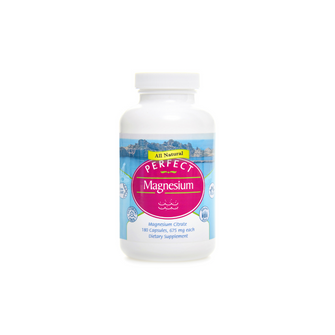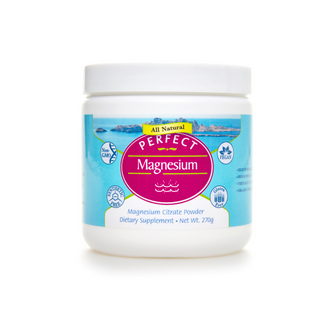Categories
Gut health is a complex kind of issue because there are many factors at play. There is much to consider when your goal is optimal gut health, such as:
- Diet & Nutrition
- Antibiotics
- Lifestyle choices
- Supplementation
- Candida Overgrowth, Leaky Gut & Dysbiosis
- Stress (emotional, physical, environmental)
- Exposure to many chemicals (including pesticides, herbicides etc)
- Sleep quality
- and so on...

For the purpose of this blog today, I'll keep it to the topic of diet & nutrition and in particular; magnesium intake and magnesium levels.
Magnesium and Overall Health
Magnesium plays a massive role in our overall health, everything from our emotional wellbeing, gut health, energy, bone strength, heart health, blood sugar, blood pressure, skin health and more! (not to mention it's role in preventing the dreaded headache!)
Magnesium and Gut Health
Magnesium's role in gut health and it's pretty substantial!
Being magnesium-deficient (let's just abbreviate this to MgD for the blog because I am lazy and you are busy 🤪 interferes with your gut's ability to heal and also higher levels of intestinal inflammation. Deficiency in magnesium also creates a whole host of other health issues but that's probably already apparent in the paragraph above...
Our Gut microbiome is an environment in our body that is very fragile and also adaptive. It changes upon the intake of certain nutrients and one of those is magnesium.
Studies show that the gut microbiome of mice differed significantly based on high versus low-magnesium diets. This test revealed that mice on a low-magnesium diet (who were magnesium-deficient) were less mobile, more depressed and this also correlated to dramatic changes in their gut microbiota (gut bugs/gut bacteria).

At Universite Catholique de Louvain in Brussels, some research was conducted to understand the potential that magnesium has on gut bacteria. Mice were similarly fed either a high or low-magnesium diet with the intention to analyse inflammation in the intestines, but not only that but also to examine particular species of bacteria.
When several days had passed, the researchers were able to determine that a diet low/deficient in magnesium was associated with higher intestinal inflammation. MgD also showed (in the research) a reduction in the important gut bug bifidobacteria.
Why is Bifidobacteria So Vital for Good Gut Health?
Bifidobacteria (one of the good guys) is a major component of the gut microbiome and is thought to produce vitamins and also shield the gut from harmful bugs and pathogens. When the good bacteria (like Bifidobacteria) outnumber the bad guys, we have more gut flora balance and therefore, better gut health and a stronger immune system.
Magnesium in Food
While it's true, that we get magnesium from the foods we eat (especially dark leafy greens such as kale and spinach), at times or often even, we may still remain deficient. Many people lose magnesium due to stress so taking it in a supplement form can be highly beneficial!
References:
https://www.ncbi.nlm.nih.gov/pubmed/25690713
https://www.huffingtonpost.com.au/2017/07/10/what-foods-contain-magnesium_a_23024245/
https://www.health.harvard.edu/staying-healthy/what-you-should-know-about-magnesium2
https://www.healthline.com/nutrition/10-proven-magnesium-benefits
Disclaimer: This article is strictly for informational purposes and is not intended as health advice. Statements made have not been evaluated by the TGA and are not intended to treat, diagnose, cure or prevent and one should always consult with their trusted health professional before adding a new supplement to their diet








